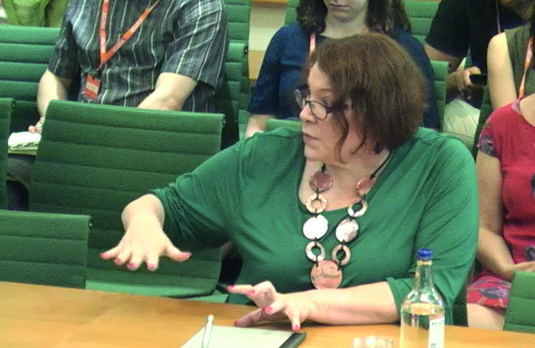Advancing UK Leadership through Biofilm Policy Engagement and Science Diplomacy
‘Policy engagement’ refers to the process by which scientists and researchers inform and influence public policy, ensuring that decisions are evidence-based and reflect the latest scientific advancements. This engagement bridges the gap between research, policy-making, and the public, fostering an informed community and effective governance. ‘Science diplomacy’ involves the use of scientific collaborations among nations to address common problems and build constructive international partnerships. In the context of biofilm research, these efforts not only enhance scientific understanding but also address global challenges, from healthcare to environmental management.
Our Influence in the Public Sphere
NBIC formulated a working group comprising members of the Executive Management Team and the Operational Team to pursue our strategic priority of progressing NBIC’s influence in the public sphere by attending events
NBIC is committed to capitalising on our strengths in biofilm research to elevate our standing both nationally and internationally. We are at the forefront of fostering scientific collaborations, as demonstrated by our role in the International Biofilms Standards Task Group, alongside partners from the US, Singapore, Australia, and the EU. These collaborations underscore our contribution to promoting a globally engaged Britain through science diplomacy in the field of biofilms.
To accomplish this, NBIC contributes evidence to inquiries at national and local level and strengthens its relationships with policymakers and key stakeholders through strategic engagements.
We have also engaged our own biofilms community to draft two policy briefs around the significance of biofilms in the wastewater and climate policy sectors and will further engage policymakers with these.
Past Inquiries and Consultations
-
Under the Microscope Inquiry 2025: This inquiry by the House of Commons Science, Innovation and Technology Committee was an open public consultation, inviting suggestions on topics that Members of Parliament should scrutinise in depth, particularly within the fields of science, technology, and innovation. From the >300 topics submitted, six people were invited to provide oral evidence, and NBIC’s Edinburgh Co-Director, Professor Cait MacPhee, gave a pitch on NBIC’s behalf in July 2025. Professor MacPhee outlined the significant positive and negative impact that biofilms have on our environment, advocated for the government to review the national infrastructure which could facilitate innovation and its exploitation to manage and engineer these biofilms. The recording of the session can be found on the UK Parliament website.
-
Engineering Biology 2024: In April 2024 the House of Lords Science and Technology Committee launched an inquiry into engineering biology. In 2023, the UK Government had identified engineering biology as one of five technologies that were “most critical to the UK”. The committee published its report on 14 January 2025. The report contained 35 conclusions and 40 recommendations and NBIC provided written evidence to support the Inquiry. NBIC was pleased to see that the report incorporated many of its key ideas, including the increased emphasis on skills training, enhanced mobility between academia and industry, the importance of science expertise in the civil service, and the recognition of the necessity for advancements in regulatory frameworks, alongside initiatives for greater public engagement and information dissemination. You can read the report on the UK Parliament website.
-
My Science Inquiry 2022: This inquiry invited proposals on what the (then) Commons Science and Technology Committee should investigate next and why, including what action is needed from the Government. Previous inquiries were held in 2017 and 2019 and gathered over 160 inquiry ideas. Six organisations were invited to give oral evidence in the 2022 round. NBIC’s CEO, Professor Jo Slater-Jefferies, did so on NBIC’s behalf in October 2022. Although NBIC’s pitch was not chosen for further investigation by the Committee, a complementary pitch on bacteriophages has been taken forward. NBIC is heavily involved in the KTN Phage Innovation Network, where we have representation on the advisory panel. The recording of the session can be found on the UK Parliament website.
- Confronting Antimicrobial Resistance 2024 to 2029: In late 2022, the UK government sought public input to shape the forthcoming 5-year national action plan on antimicrobial resistance (AMR). This call for evidence, which concluded in January 2023, aimed to refine the nation’s strategy against AMR. NBIC provided a detailed submission, emphasising the role of biofilms in AMR and advocating for innovative treatment methods and international regulatory frameworks. The updated Government policy paper was published in 2024. The plan’s focus on developing new antimicrobial strategies and enhancing diagnostic approaches aligns with NBIC’s recommendations for targeted biofilm management. It also reflects NBIC’s advocacy for global leadership in AMR research and policy, setting a framework for integrating biofilm-specific concerns in future AMR efforts.
Memberships to committees, advisory panels and learned societies
- Specialist Advisory Group on Waste Sector Greenhouse Gas Emissions – NBIC Edinburgh Co-Director, Professor Cait MacPhee.
- Liverpool City Region Innovation Board – NBIC Liverpool Co-Director, Professor Rasmita Raval.
- UK-Singapore Strategic Partnership dialogue – NBIC Nottingham Co-Director, Professor Miguel Cámara; NBIC Liverpool Co-Director, Professor Rasmita Raval; NBIC CEO, Professor Jo Slater-Jefferies; NBIC Southampton Co-Director, Professor Jeremy Webb; NBIC Edinburgh Co-Director, Professor Cait MacPhee.
- Soil Association Exchange – NBIC Southampton Co-Director, Professor Jeremy Webb.
Interested in Working with Us?
If you want to work with us or learn more about our policy engagement and activities, please contact Ines Foidl, our Policy Engagement Officer.

Ines Foidl
Policy Engagement Officer
Ines works with academics to provide strategic support to the NBIC Edinburgh team and works on matters relating to public and policy engagement for NBIC at large.


